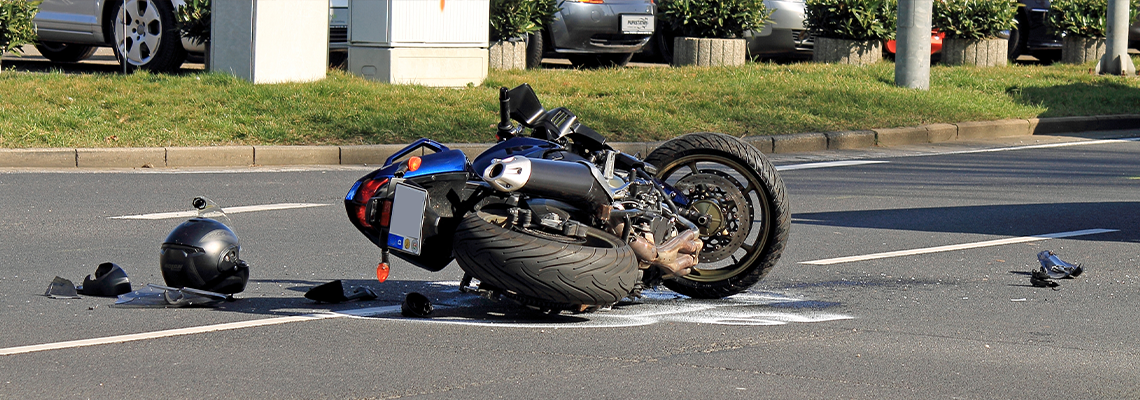
Motorcycle Laws in New Jersey
In New Jersey, there are various state and local laws designed to ensure the safe operation of motorcycles and the safety of motorcyclists. A rider who violates any of these laws and causes an accident may be held responsible for the victim's injuries and damages. Hence, if you were involved in a motorcycle accident in New Jersey, knowing the state's motorcycle laws is imperative to understand your possible options to seek compensation and determine how to proceed with your case.
At The Law Offices of Gold, Albanese & Barletti, LLC, we have the resources and knowledge to guide, support, and represent clients in their motorcycle accident cases. Our experienced New Jersey personal injury attorneys can tell you about the state's motorcycle laws and investigate every aspect of your case. Also, we will help file your claims and pursue the maximum available financial compensation for your injuries and damages.
Our firm proudly represents motorcycle accident victims throughout Morristown, New Jersey, as well as surrounding areas across New Jersey, New York, and Boston, Massachusetts.
Motorcycle Laws in New Jersey
Here are some laws, rules, and regulations guiding the operation of motorcycles in the state of New Jersey:
Lighting
Having proper lighting on a motorcycle is very important for your personal safety, including other motorists and road users. According to New Jersey laws, every motorcycle shall be equipped with the following:
One or two headlamps
One stop lamp
One tail lamp
Adequate license plate illumination
At least one reflector on the rear
One lamp on the sidecar or other extension, if available.
Use of the Road
To operate a motorcycle lawfully in New Jersey, here are some necessary requirements:
You must have a valid motorcycle driver's license or endorsement.
You must have a valid insurance policy.
Passengers must have a seating and wear a helmet.
You can drive the motorcycle on a lane of a roadway.
You must not drive the motorcycle in a way that deprives another motorcycle of the full use of a lane.
All motorcyclists must obey the rules and regulations that apply to motor vehicles.
Helmet Law
Additionally, helmets provide additional protection to motorcyclists and help reduce the risks of severe injuries, fractures, or even death. In New Jersey, the law requires motorcyclists to wear a federal DOT-approved helmet. In addition, the helmet must have a reflector and a chin strap.
Under New Jersey law – New Jersey Revised Statutes Section 39:3-76.7 – "No person shall operate or ride upon a motorcycle unless he wears a securely fitted protective helmet of a size proper for that person and of a type approved by the federal DOT. Such a helmet must be equipped with either a neck or chin strap and be reflectorized on both sides thereof."
Lane Splitting
Lane splitting is a traffic maneuver that often involves a motorcyclist riding in between two lanes of traffic moving in a similar direction. Although, there is no specific statute in New Jersey that allows or forbids lane splitting. Regardless, lane splitting is usually considered unsafe and dangerous. Thus, the practice of lane splitting isn't encouraged.
Determining Fault in a New Jersey Motorcycle Accident
New Jersey is a "no-fault" state for auto insurance. According to the state's no-fault laws, a person injured in a motorcycle accident will turn to their own insurance policy (PIP coverage) to recover medical costs, lost wages, and other out-of-pocket expenses, up to the policy limit, no matter who was at fault for the incident.
The Limited Right to Sue
According to New Jersey's "limited right to sue," you may opt out of the no-fault system and file a personal injury lawsuit against the liable party if you sustained any of the following from the accident:
A displaced fracture
Loss of a body part
Substantial disfigurement
Significant scarring
Permanent injury
Loss of a fetus
Death.
With this, you can file a third-party claim or lawsuit against the at-fault pay and pursue damages for pain and suffering, mental anguish, and other non-economic losses.
The Unlimited Right to Sue
In New Jersey, the "unlimited right to sue" allows a motorcycle accident victim to step out of the no-fault/PIP claims and file a lawsuit against the at-fault driver, regardless of the magnitude or severity of their injuries. Hence, you will have all your possible options to pursue both economic and non-economic damages after the incident.
Modified Comparative Fault in New Jersey
New Jersey operates using the modified comparative fault principle, with a 51% bar. Under the rule, you will only be able to recover damages if the other party's negligence is greater than (51% or more) than yours. However, your amount of compensation will be reduced by your fault degree. According to New Jersey's modified comparative fault laws, you will be barred from seeking damages if you were mostly at fault for the motorcycle accident.
Turn to an Experienced Motorcycle Accident Attorney
Being involved in a negligent motorcycle accident can be difficult and painful. That being said, you don't have to suffer the financial liability alone. At The Law Offices of Gold, Albanese & Barletti, LLC, our attorneys are here to protect the best interests of motorcycle accident victims and their loved ones. As your legal counsel, we will fight compassionately for your rights and help you pursue fair financial compensation for your injuries and damages.
Contact us at The Law Offices of Gold, Albanese & Barletti, LLC, today to schedule a simple case assessment with trusted motorcycle accident attorneys. Our reliable legal team can direct you through the often complex process involved in filing claims and seeking damages. We proudly represent clients throughout Morristown, New Jersey, as well as surrounding areas across New Jersey, New York, and Boston, Massachusetts.

